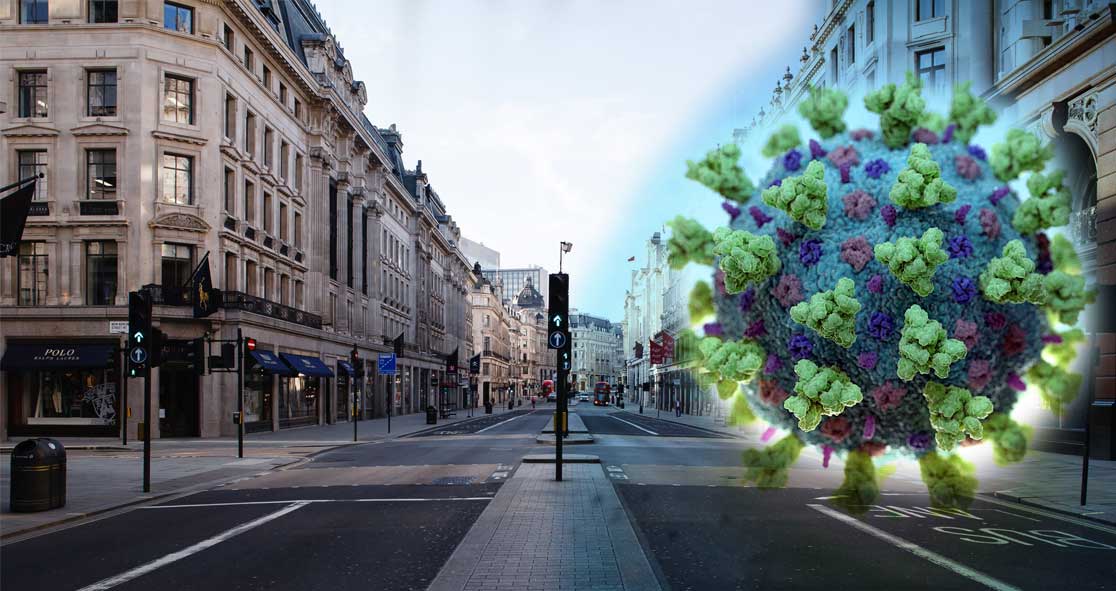A new variant of coronavirus (SARS-CoV-2) is responsible for the introduction of tighter restrictions this Christmas in the United Kingdom, including England, Scotland and Wales.
Officials said the new coronavirus variant has been spreading rapidly. The virus is rapidly transmitting to other versions of the virus. It is undergoing mutation, making it more contagious than before. However, the officials said they have no absolute certainty.
Prof. Nick Loman from the Covid-19 Genomics UK Consortium told James Gallagher, BBC Health and Science Correspondent, “Laboratory experiments are required, but do you want to wait weeks or months [to see the results and take action to limit the spread]? Probably not in these circumstances.”
The spread of the new variant was first detected in September.
Citing the recent data, Prime Minister Boris Johnson said the coronavirus variant may be up to 70% more transmissible – the number which appeared in a presentation by Dr. Erik Volz of Imperial College London.
“It is really too early to tell… but from what we see so far it is growing very quickly, it is growing faster than [a previous variant] ever grew, but it is important to keep an eye on this,” Dr. Volz said.
However, there are many questions unanswered about whether the new variant is infectious at all.
Virologist Prof. Jonatan Ball of the University of Nottingham said, “The amount of evidence in the public domain is woefully inadequate to draw strong or firm opinions on whether the virus has truly increased transmission.”
The new variant has been found across the UK, except Northern Ireland. However, it is heavily concentrated in London, the South East, and eastern England.
A similar coronavirus variant has emerged in South Africa, which appears to be unrelated to the one found in the UK, but shares some of the same mutations.
The coronavirus that was first detected in Wuhan, China, has mutated and no more the same that you will across the world.
The new variant identifies 17 potentially important alterations, according to BBC. The virus’ spike protein has undergone a few changes. The spike protein is the key to the virus uses to enter the cells and create havoc.
Talking about the new variety, Prof. Loman said, “It looks and smells like an important adaptation.”
Prof. Ravi Gupta of the University of Cambridge has suggested that this new genetic mutation of the virus increases “infectivity two-fold in lab experiments.”
He told Gallagher, “It is rapidly increasing, that’s what’s worried government, we are worried, most scientists are worried.”
There is no evidence to suggest that the new variant makes the infection more deadly, but researchers will need to monitor it.
Pfizer’s vaccine is now approved in the UK, but will it work against the new variant? The researchers said it may work for now.
Vaccines incite the immune system to attack the virus, so even though the virus undergoes mutilation, the vaccines should still work. “But if we let it add more mutations, then you start worrying,” said Prof. Gupta.
“This virus is potentially on a pathway for vaccine escape, it has taken the first couple of steps towards that,” he added. The article originally appeared on the BBC.























